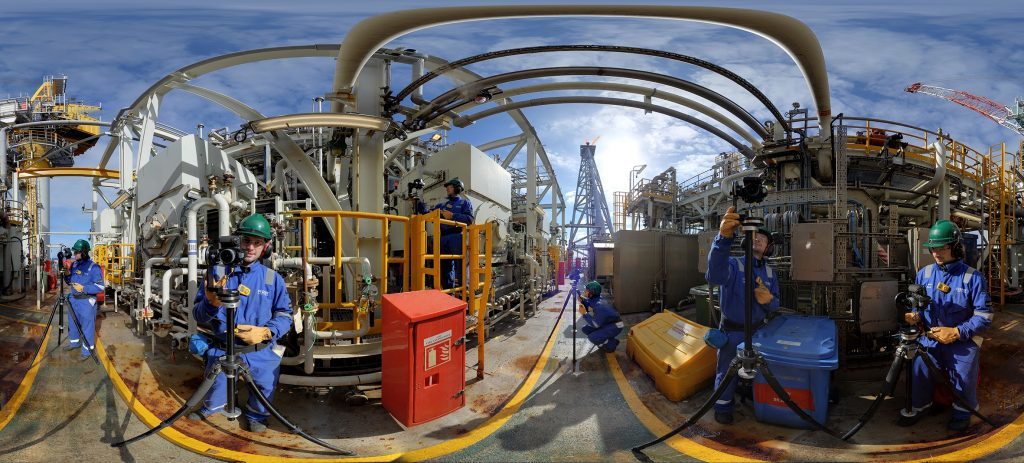
I have very much enjoyed a series of stories and quotes used in presentations and discussions in recent months, delivered to an audience today, for which there is as much relevance as when they were first written in the early 1970s.
One of my personal favourites (and, yes, one I’ve used previously) comes from an advertisement by Shell for its Brent Field in the 1970s, declaring the need for “…a leap of technology as great as that which placed the first men on the moon”.
Certainly, in my working life, there has never been a more exciting time to be involved in innovation and technology in support of oil and gas. Technological push is meeting industry pull while facilitators are proactively enabling digital disruption.
To this end, businesses of every size are capitalising on this environment, and throwing themselves into R&D and addressing the challenges facing industry today and tomorrow.
Indeed, whether you believe we are in the midst of the second digital age or entering the fourth industrial revolution, the pace of technological development is so fast, we no longer see the leaps our colleagues from the 1970s witnessed, but a more iterative, constant development; learning and adoption from other industries and making better use of existing technologies.
To put this into perspective, according to the findings of the World Economic Forum (WEF) in 2016: “It is clear that the millennial generation will experience greater technological change over the next decade than the past 50 years.”
This iterative technological development can be just as powerful and is behind the leaps we are beginning to see in the ways we operate our assets, collaborate and access our data as an industry; and where we will see the real impact of digital disruption to oil and gas.
According to a recent piece by EY: “The Fourth Industrial Revolution will mark a significant change in the way we work. Made possible by the emergence of digital systems, networked communications, machine learning and large-scale data analysis, it refers to the increasing integration of these technologies into business and production processes to make them self-sustaining and more efficient.”
It goes on to state that “this latest shift will see systems that blend web connecting and digital controls with real-world tools”.
It’s an energising time, but one we can’t forget was forged by crisis and a collective battle to secure the future of oil and gas. Technology and innovation are not panaceas and digital disruption brings with it its own challenges to industry.
From the word “digital” being attached to service lines overnight, to misinformation and on occasion dis-information, over the capabilities of market offerings, we must be mindful of endangering the positive disruption oil and gas has now, quite rightly (read eventually), recognised the necessity for.
I recently re-read an article I first read in Forbes back in 2015. The piece struck a chord with me at the time, (a year into our own R&D into the latest iteration of our own technology) and it continues to resonate.
It related to the launch of Ultra HD 4K televisions and how, even though at that time, 4K content was so rare that companies were still delivering something that could be watched in 4K, the existence and promise of 4K alone rendered demand for the current but now “old” technologies all but obsolete.
For an industry that is still fragile, and one that historically had lengthy R&D cycles and a time to market process for new technologies of 15-20 years, failure to deliver on the positives of digital disruption has the potential to be detrimental to industry and significantly set back technological development and innovation in ways of working.
In short, proposing theory as solution, utilising the market to realise said theory or going to market incomplete, are not options. With greater demands for value being put on the supplier, the risk to the credibility of individual businesses, the acceptance of technological solutions and wider industry, are real and significant; facts intensified by the increased speed of adoption encouraged by the concurrent need for and promise of technology. Quite simply, those playing this game will be found out quicker than pre-downturn and with greater consequence all round.
We’ve seen a measurable upsurge in collaboration and knowledge exchange between companies in this technologically disruptive space – which is incredibly promising. Sadly, we’ve also witnessed competitive negativity and disinformation; unnecessary and with the potential to impede the wider positive impetus across oil and gas.
As an industry we continue to prove the challenges can be overcome. I am confident those I mention above are not insurmountable and with the support of facilitators like the Oil & Gas Technology Centre (OGTC) enabling project piloting and feasibility studies, there are mitigation tools in the industry arsenal.
Referencing the pace and scale of technological development, the 2016 WEM concluded “…leaders from all walks of life must prepare for a future of exponentially disruptive change.”
Digital disruption is something that we need to embrace for our industry’s future and one, which ironically, the downturn provided us the momentum and opportunity to lead the way on.
Bob Donnelly is the managing director of Return To Scene Ltd..
Recommended for you
